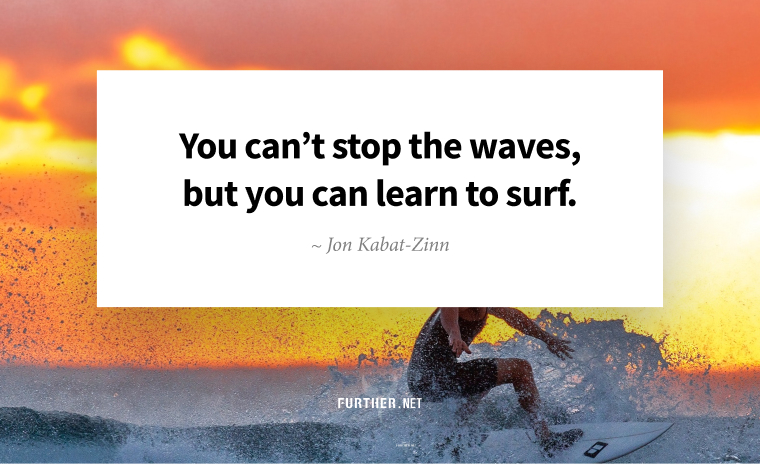
The present is all we have. As a meditation teacher, that’s our most common refrain — let go of thoughts past and future, and you’ll find the power of now.
Awesome in theory but complicated in practice. You’re working against a combo platter of human nature and brain wiring that writes the story of your sense of self, making you yearn for the past and tricking you into believing you can predict the future.
Plus, how would you do anything if you only had present-moment thoughts? You wouldn’t be able to remember your phone number or where you live or plan a future meeting or a trip.
But don’t write off mindfulness so quickly — after all, it’s a proven path to reduced stress, chronic pain, anxiety/depression, and improved sleep, relationships, sex, and overall health and well-being. Instead, give your thoughts, well, some thought, by learning how to make wiser choices about them.
In Hindsight
Your prior experiences aren’t just old news — science shows they play an essential role in complex decision-making. Thus your thoughts about the past, which are persistent and evidenced by nostalgia, are valid. That said, all thoughts happen in the present moment, so you must be mindful of where they’re taking you.
The problems emerge when thoughts carry us out of our bodies and off into a la la land where we imagine we are in the past or the future rather than forming thoughts about them.
Mindfulness entails becoming aware that thoughts aren’t facts — but they can be helpful tools. When they bubble up with past information, they’re a mechanism of reflection, storytelling, and learning. Add in awareness and intention, and you can mitigate the impact of past events on your current life.
Merging mindfulness with hindsight means knowing, humbly, that when we are having thoughts about the past, we are not actually in the past.
In other words, you’re allowing space to acknowledge what you’ve done and endured while cultivating resilience by not getting stuck in the past.
The Way Forward
Similarly, you can use mindfulness to welcome what’s to come without fear or prejudice.
Being mindful of the future means truly being open-minded, making estimations and guesstimations, predictions and plans, while at the same time knowing that you do not know the future.
The flavor of your mindfulness depends on you; it can be a formal meditation practice or simply an intentional way of moving through the world when you’re doing things like eating, bathing, or working out. That way, when you think hindsight is 20/20 or the future is bright (or dim, depending on the day), you’ll be able to see your way clear to a happier, healthier experience of today.
Unlocking the Full Potential of Mindfulness: Rethinking Thoughts about the Past and Future (Mindful)
